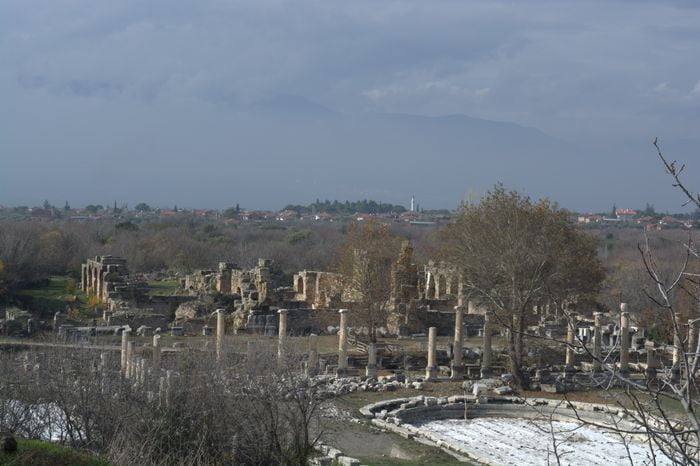27. How the defender of the faith protected the interests of the Christians
The deeds of Justinian were such that all eternity would not be long enough in which to describe them adequately. So a few examples will have to suffice to illuminate his whole character to future generations: what a dissembler he was, how he disregarded God, the priests, the laws, and the people who showed themselves loyal to him. He had no shame at all, either when he brought destruction on the State or at any misdeed; he did not bother to try to excuse his actions, and his only care was how he might get sole possession of all the wealth of the world. To begin:
As bishop of Alexandria he appointed a man by the name of Paul. At this time one Rhodon, a Phoenician, was Governor of that city. Him he ordered to serve Paul with all zeal, and to allow none of his instructions to be unfulfilled. For thus he thought he could associate all the priests in Alexandria under the synod of Chalcedon.
Now there was a certain Arsenius a native of Palestine, who had become one of the most useful intimates of the Empress Theodora, and consequently after acquiring great power and wealth, had been raised to senatorial rank, though he was a disgusting fellow. He was a Samaritan, but so as not to lose his official rank and power, became a nominal Christian; while his father and brother, encouraged by his authority, continued in their ancestral faith in Scythopolis, where, with his consent, they persecuted the Christians intolerably.
As a result of this, the citizens revolted and put them both to a most shameful death. Many later troubles afflicted the people of Palestine because of this. At the time, however, neither Justinian nor the Empress did anything to punish Arsenius, though he was principally responsible for the whole trouble. They merely forbade him entrance to the palace, to get rid of the crowds of Christians complaining against him.
This Arsenius, thinking to please the Emperor, soon after went to Alexandria with Paul, to assist him generally and in special to help him get the good will of the Alexandrians. For during the time he had been barred from the palace, he affirmed he had become learned in all the Christian doctrines. This displeased Theodora, for she pretended to disagree with the Emperor in religious matters, as I have told before.
Read More about Taste of Balkan Tour








